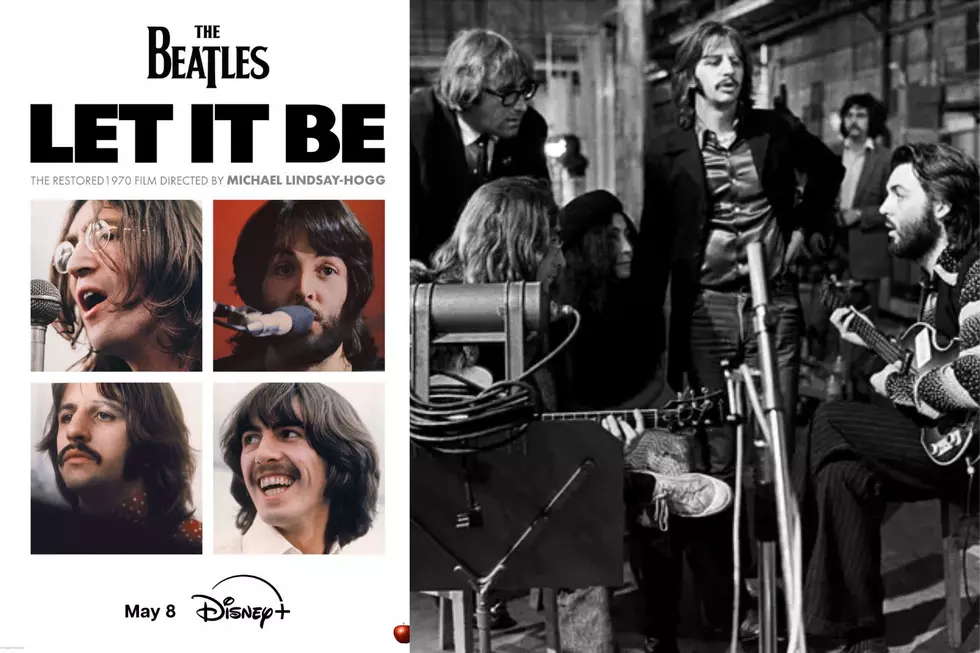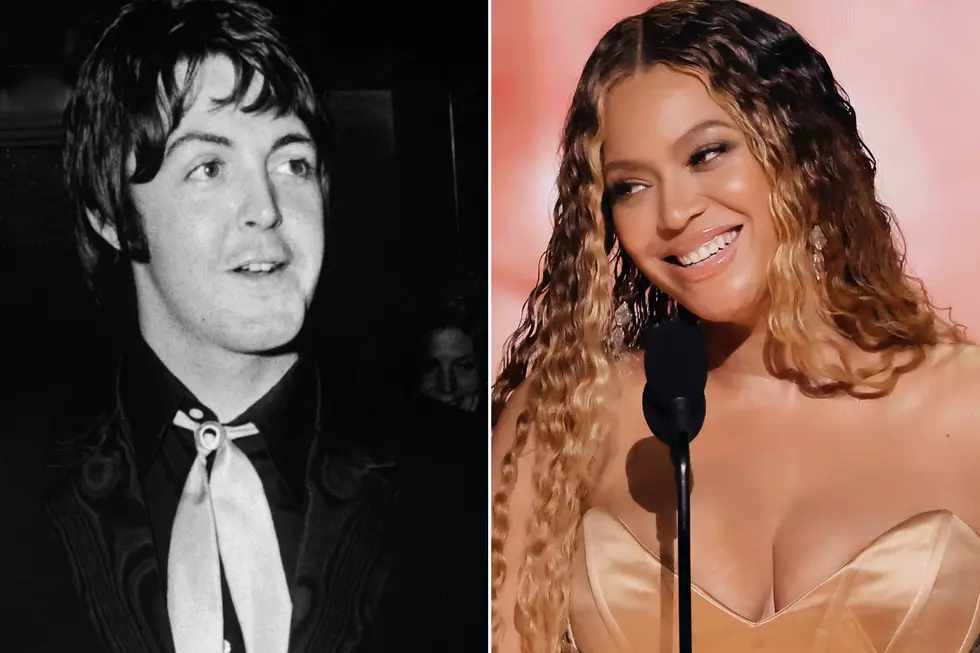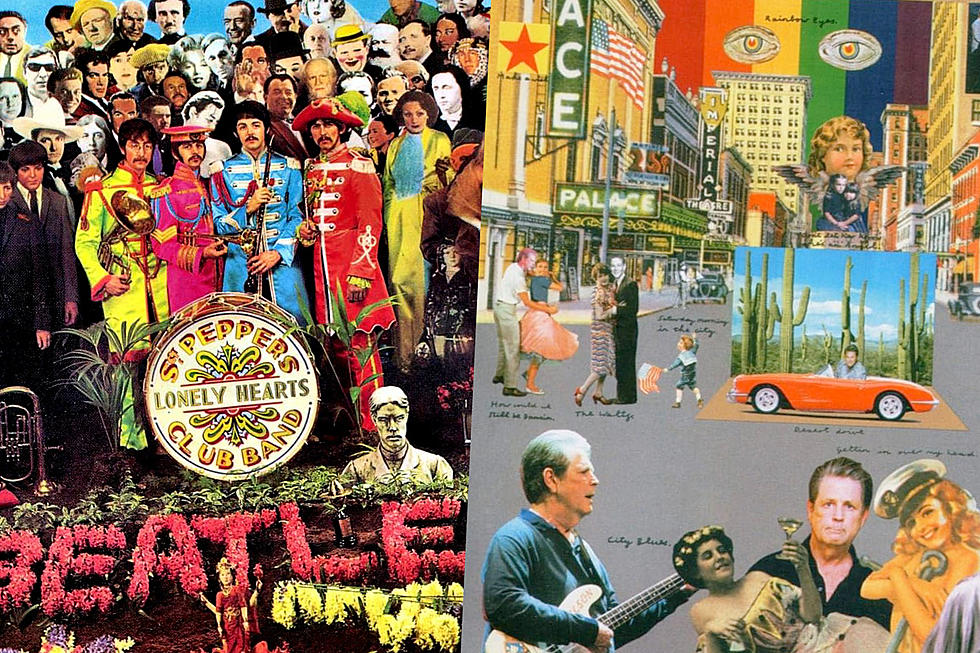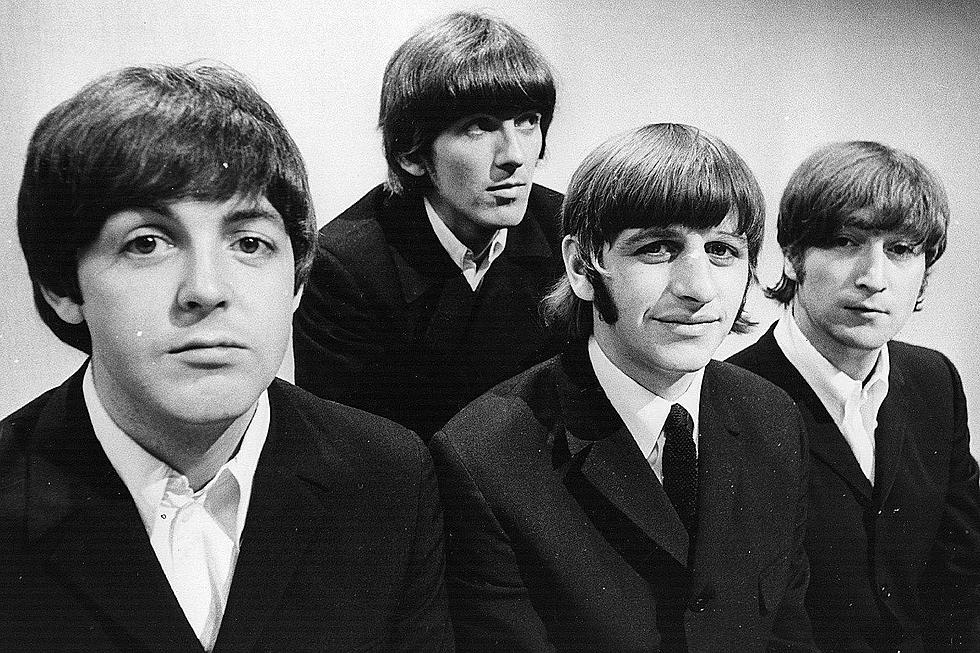
How the Beatles Put America’s Teen Idols in a “State of Shock”
When British Invasion groups like the Beatles, Rolling Stones and the Dave Clark Five arrived in the U.S. 50 years ago, they swept established American musicians from the record charts; most never had another hit.
Legendary Philadelphia radio personality Jerry “The Geator” Blavat was one of the few deejays who continued to play homegrown rockers like Little Richard and Chuck Berry. “When the Beatles came in, that was bubblegum to me. It wasn’t rock ‘n’ roll,” Blavat explained. “I never played the Beatles."
“Radio was dominated by the English sound. And you had a short playlist… you only played the Top 40 songs. The only groups that were able to break through were the Beach Boys, all of the Motown artists and the Four Seasons.” Teen idols, said Blavat, “could not get radio play. And if you don’t get radio play, nobody’s listening to you.
“They were back in their home towns playing clubs where they began.”
Ultimate Classic Rock asked American rockers of the era how the sudden popularity of the Beatles and British Invasion bands affected their careers.
Jimmy Clanton
"In 1962 ‘Venus in Blue Jeans’ became a smash hit overnight and my career hit a new high. Everything was just kind of coasting along, it was like a repeat of the 1958-59 days of ‘Just a Dream,’ ‘Go Jimmy Go’ and all of the big Alan Freed shows.
"But then this English group comes along called the Beatles. Everything changed. With radio, if you didn’t speak with an English accent, you were lucky to get a record played. The music changed, the mindsets changed. It was like living in a different world. I remember going from all the bus tours to the late-‘60s where I was lucky to get a gig in a little nightclub that sat 200 people.
"All of a sudden the records weren’t selling, the record companies didn’t want to re-sign us… and the money was nil. So now all of us were thinking, what do we do? Do we go sell insurance, sell cars? Because it happened so quickly we were in a state of shock but the shock did not lessen, it just stayed. And it never lost steam.
"I did a road show with the Yardbirds. Jimmy Page from Led Zeppelin was in that group and their whole show ended up being just screaming and doing feedback where you take your guitar and you play it wide-open volume and you push it up into the amplifiers. It seemed like every other gig they were having a tractor-trailer show up with new amplifiers because they blew them out every night.
"The teen idol days were gone, they were over. There was no such thing as the individual teen idol anymore. Now it was Beatlemania and the Rolling Stones and they were the teen idols, period."
Jimmy Clanton’s career was jump-started by the rock ‘n’ roll revival shows of the late-‘60s and ‘70s; Clanton later became a minister and continues to perform his R&B-flavored love songs.
Tommy Roe
"I did a tour in ’63 over in England and the Beatles were a featured act on our tour. I saw something happen there that was really extraordinary. I was in on the ground floor of Beatlemania. Nobody knew who they were in the U.S. In ’63 they were just getting their footing in England. When Chris [Montez] and I came over, we were the headliners of the tour and they were the featured act but they had developed this fan base that was following them from venue to venue. They just created chaos everywhere they went. If you remember all those scenes in ‘A Hard Day’s Night’ when the kids are chasing them down the street, that’s exactly how it was on our tour. And after doing ‘The Ed Sullivan Show,’ the writing was on the wall.
"What really made me change my style was the British Invasion. After the Beatles’ success, all the other British acts pushed a lot of the American acts off the charts. I had to find a niche for myself and that’s what inspired me to go from rockabilly songwriting into what I call the soft rock style of songwriting, to sound different on the radio. I moved to New York and started writing what later became known as bubblegum music. You know, they call me the king of bubblegum; well, that all started with ‘Sweet Pea.’ I think that’s how I survived the charts in the ‘60s."
Tommy Roe’s string of hits include ‘Sheila, ‘Everybody’ and ‘Dizzy.’ Roe recreated his opening for the Beatles at their first U.S. concert 50 years ago with a show at the Washington Coliseum on Feb. 11, 2014.
Randy Scafuto, Randy and the Rainbows
"In 1963, the Four Seasons had just gotten back from England and they said, 'You guys gotta hear this group, the Beatles.' We said, 'What?' Frankie Valli said, 'They’re called the Beatles. They were opening up for Roy Orbison. By the end of the tour, Roy Orbison was opening up for the Beatles.' And Frankie Valli told us straight out this group is going to be a monster. This is six months or so before they hit New York.
"When we first heard the Beatles, they didn’t really sound any different than we did. At the beginning, we heard the Everly Brothers when we’d hear them. And as far as the English groups, they were doing the same stuff we were doing, but in an English accent.
"At the time, we had another record coming out, ‘Why Do Kids Grow Up,’ our second record, which was going to be a bigger hit than ‘Denise.’ We were recording but the records weren’t making the noise that they should have because of the English acts coming in. And it was an invasion, any English group that came out was at the top of the charts. We got screwed, what am I gonna say?"
New York City’s Randy and the Rainbows, whose biggest hit was 1963’s ‘Denise,’ still maintain a busy touring schedule, playing rock and doo-wop classics.
Jerry Gross, the Dovells
"At end of ‘63, ‘You Can’t Sit Down’ was a hit. Right after that we get booked in Japan. By the time I got back, the Beatles were here. Our record company, Cameo-Parkway, said, 'Here’s a record I think you guys would do great with.' So they give us the song and we record ‘She Loves You.’ Swan [Records] had the record by the Beatles and they weren’t putting it out yet, I don’t know why, but we recorded it before the Beatles put it out.
"Instead of putting it right out, Cameo didn’t know what to do so they sat with it. And then they said, 'Let’s try a couple of other things.' So we recorded something that sounded like the Four Seasons and something that sounded like the Beach Boys. We were doing all these different tunes and meanwhile the Beatles came out with it."
Mark Stevens, the Dovells
"By the time ‘You Can’t Sit Down’ had done its run, that was about it. There may be one or two other records but the record company never pushed them. They saw the writing on the wall as far as I’m concerned. And the writing on the wall was the English Invasion.
"The Beatles never affected our live performances or the amount of gigs that we did but killed our career from a record standpoint. And after all, without a record on the charts, the masses of the country and the world don’t know you exist because they hear you on the radio and they go, 'Oh the Dovells, they got another record! They’re still there!' Forget about it, it was very difficult to get airplay. Radio stations knew what was happening; the kids loved the Beatles and the Stones and all these other acts from England and that’s who they wanted to play. We were fearful that the Dovells were never going to get on the charts again. But we never feared that we were going to lose work."
Jerry Gross and Mark Stevens are founding members of the Dovells, who scored two Top 5 hits with ‘Bristol Stomp’ and ‘You Can’t Sit Down.’ The Dovells continue to perform their musical comedy act and dance tunes.
Kenny Vance, Jay and the Americans
"We were basically pawns to people like Jerry Leiber and Mike Stoller, who were record producers and were older than us and had record deals with Atlantic and with United Artists. Basically they would find some songs or write some songs and they would produce these records for us that became hits. It was a different thing where the Beatles actually went into the studio and played this stuff and wrote this stuff. So they were so far ahead of where we were.
"We were the opening act for the Stones at Carnegie Hall and we met with them in the dressing room. The Stones went on and then Murray the K, the disc jockey running the show said, 'You guys gotta close the second show or there’s gonna be a riot.' We said, 'We can’t follow these guys.' He said, 'You gotta.' So the Stones go on and the girls are screaming and jumping and going crazy and then Murray the K says, 'Right now from Brooklyn, New York, Jay and the Americans!' And we come out and we’re doing these ridiculous steps, wearing alpaca sweaters and dickeys. And we’re singing ‘Only in America’ and the audience is getting up and running out of Carnegie Hall. We finished the song and we had cleared it. It was empty. I went home and I thought, 'S---, I’d better get a guitar.'"
Kenny Vance was a founding member of Jay and the Americans, whose hits in the ‘60s included ‘She Cried,’ ‘Cara Mia’ and ‘Come a Little Bit Closer.’ Vance today performs the hits of the ’50s and ‘60s with his group, Kenny Vance and the Planotones.
More From Ultimate Classic Rock









